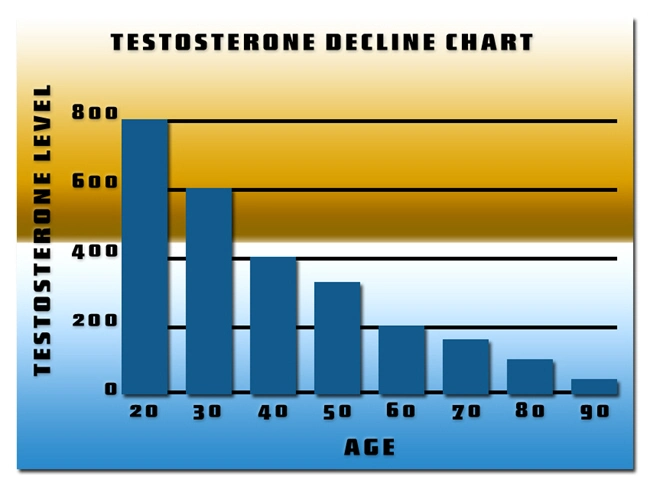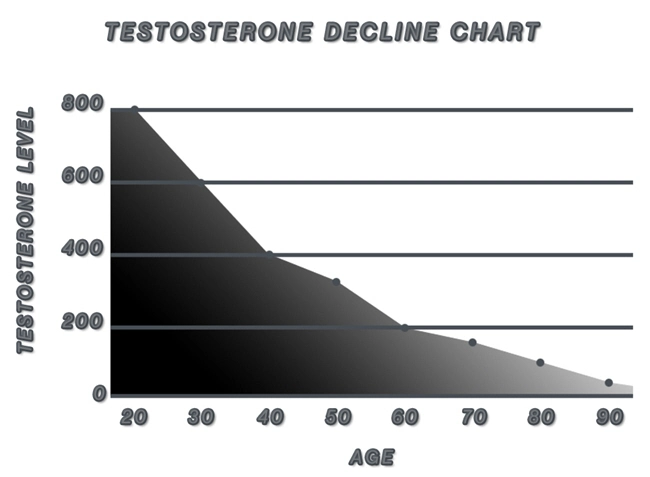
Introduction
Testosterone Cypionate, a commonly prescribed form of testosterone replacement therapy, has been extensively studied for its effects on muscle mass, bone density, and libido. However, its influence on skin health, particularly skin elasticity and collagen production, remains a less explored area of research. This article delves into the dermatological and biochemical effects of Testosterone Cypionate on American males, providing a nuanced understanding of how this hormone impacts skin health.
Background on Testosterone Cypionate
Testosterone Cypionate is an injectable form of testosterone that is used to treat conditions associated with low testosterone levels, such as hypogonadism. It is favored for its long-acting nature, which allows for less frequent dosing compared to other forms of testosterone. While its primary benefits are well-documented, emerging research suggests that it may also have significant effects on skin health.
Dermatological Effects of Testosterone Cypionate
Testosterone Cypionate has been observed to influence skin elasticity, a critical factor in maintaining youthful and healthy skin. Studies have shown that testosterone can enhance the production of elastin, a protein that allows the skin to stretch and return to its original shape. This increase in elastin can lead to improved skin firmness and resilience, which is particularly beneficial for aging skin.
Furthermore, testosterone has been linked to increased sebum production. Sebum, an oily substance produced by the sebaceous glands, helps to moisturize the skin and protect it from environmental damage. While excessive sebum can lead to acne, a balanced increase can contribute to healthier, more hydrated skin.
Biochemical Impact on Collagen Production
Collagen, the most abundant protein in the human body, is essential for maintaining the structural integrity of the skin. Recent research has highlighted the role of testosterone in stimulating collagen synthesis. Testosterone Cypionate has been shown to upregulate the expression of genes involved in collagen production, leading to increased collagen levels in the skin.
This increase in collagen can have profound effects on skin health, including improved skin texture and reduced appearance of wrinkles. For American males, particularly those experiencing age-related declines in collagen production, Testosterone Cypionate may offer a valuable tool in maintaining skin vitality.
Clinical Studies and Observations
Several clinical studies have investigated the effects of Testosterone Cypionate on skin health. A study conducted on a cohort of American males aged 40-60 found that those receiving Testosterone Cypionate therapy exhibited significant improvements in skin elasticity compared to a control group. Additionally, skin biopsies revealed higher collagen density in the treatment group, further supporting the biochemical evidence of increased collagen production.
Another study focused on younger males with low testosterone levels found similar results, with participants reporting enhanced skin hydration and reduced dryness after initiating Testosterone Cypionate therapy. These findings suggest that the benefits of Testosterone Cypionate on skin health may be observed across various age groups.
Potential Side Effects and Considerations
While Testosterone Cypionate offers promising benefits for skin health, it is important to consider potential side effects. Increased sebum production, as mentioned earlier, can lead to acne in some individuals. Additionally, long-term use of testosterone therapy may impact other aspects of health, such as cardiovascular function and prostate health, necessitating careful monitoring by healthcare professionals.
Conclusion
Testosterone Cypionate presents a multifaceted approach to enhancing skin health in American males. By improving skin elasticity and boosting collagen production, this hormone therapy offers potential benefits for maintaining youthful and resilient skin. However, it is crucial for individuals considering Testosterone Cypionate therapy to consult with healthcare providers to weigh the benefits against potential risks and ensure a tailored approach to treatment. As research continues to evolve, the role of testosterone in dermatology and biochemistry promises to provide further insights into optimizing skin health for American males.
Contact Us Today For A Free Consultation
Dear Patient,
Once you have completing the above contact form, for security purposes and confirmation, please confirm your information by calling us.
Please call now: 1-800-380-5339.
Welcoming You To Our Clinic, Professor Tom Henderson.

- Testosterone Cypionate: Benefits, Risks, and Holistic Management for Aging American Men [Last Updated On: March 1st, 2025] [Originally Added On: March 1st, 2025]
- Testosterone Cypionate: Enhancing Male Health Through Injection Therapy [Last Updated On: March 17th, 2025] [Originally Added On: March 17th, 2025]
- Testosterone Cypionate's Impact on Sleep Patterns in American Males: A Comprehensive Analysis [Last Updated On: March 18th, 2025] [Originally Added On: March 18th, 2025]
- Testosterone Cypionate Stigma in American Males: Origins, Impacts, and Destigmatization Strategies [Last Updated On: March 18th, 2025] [Originally Added On: March 18th, 2025]
- Strategies to Minimize Side Effects of Testosterone Cypionate in American Men [Last Updated On: March 18th, 2025] [Originally Added On: March 18th, 2025]
- Testosterone Cypionate: Enhancing Weight Management in American Men [Last Updated On: March 19th, 2025] [Originally Added On: March 19th, 2025]
- Navigating Insurance for Testosterone Cypionate Therapy: A Guide for American Males [Last Updated On: March 19th, 2025] [Originally Added On: March 19th, 2025]
- Testosterone Cypionate: Impacts on Prostate Health in American Men [Last Updated On: March 19th, 2025] [Originally Added On: March 19th, 2025]
- Testosterone Cypionate: Benefits, Risks, and Long-Term Health Impacts on American Men [Last Updated On: March 19th, 2025] [Originally Added On: March 19th, 2025]
- Testosterone Cypionate's Impact on Mental Clarity in American Men: Experiences and Insights [Last Updated On: March 19th, 2025] [Originally Added On: March 19th, 2025]
- Testosterone Cypionate Therapy: Costs, Coverage, and Financial Planning for American Males [Last Updated On: March 20th, 2025] [Originally Added On: March 20th, 2025]
- Testosterone Cypionate: Managing Chronic Conditions in American Men [Last Updated On: March 20th, 2025] [Originally Added On: March 20th, 2025]
- Testosterone Cypionate: Effects on Skin Health and Management Strategies for American Men [Last Updated On: March 21st, 2025] [Originally Added On: March 21st, 2025]
- Monitoring Testosterone Cypionate Levels: Essential Guide for Safe TRT in American Men [Last Updated On: March 22nd, 2025] [Originally Added On: March 22nd, 2025]
- Testosterone Cypionate: A Dual Benefit for Diabetes Management in American Males [Last Updated On: March 23rd, 2025] [Originally Added On: March 23rd, 2025]
- Testosterone Cypionate: A Promising Treatment for Depression in American Males [Last Updated On: March 23rd, 2025] [Originally Added On: March 23rd, 2025]
- Testosterone Cypionate: Debunking Myths and Clarifying Facts for American Men's Health [Last Updated On: March 23rd, 2025] [Originally Added On: March 23rd, 2025]
- Testosterone Cypionate's Impact on Hearing in American Men: A Comprehensive Review [Last Updated On: March 24th, 2025] [Originally Added On: March 24th, 2025]
- Testosterone Cypionate: A Vital Tool for American Transgender Males' Transition [Last Updated On: March 24th, 2025] [Originally Added On: March 24th, 2025]
- Testosterone Cypionate: Enhancing Libido in American Men - Benefits and Risks [Last Updated On: March 24th, 2025] [Originally Added On: March 24th, 2025]
- Testosterone Cypionate: Legal Status and Usage Guidelines for American Males [Last Updated On: March 24th, 2025] [Originally Added On: March 24th, 2025]
- Testosterone Cypionate's Impact on Immune Function in American Males: A Review [Last Updated On: March 24th, 2025] [Originally Added On: March 24th, 2025]
- Testosterone Cypionate's Impact on Blood Pressure in American Men: A Comprehensive Review [Last Updated On: March 25th, 2025] [Originally Added On: March 25th, 2025]
- Testosterone Cypionate: Enhancing Emotional Well-being in American Males [Last Updated On: March 25th, 2025] [Originally Added On: March 25th, 2025]
- Testosterone Cypionate: Benefits, Risks, and Safety for American Males on TRT [Last Updated On: March 25th, 2025] [Originally Added On: March 25th, 2025]
- Testosterone Cypionate's Impact on Vision Health in American Males: A Comprehensive Review [Last Updated On: March 25th, 2025] [Originally Added On: March 25th, 2025]
- Testosterone Cypionate: Enhancing Body Composition in American Men [Last Updated On: March 25th, 2025] [Originally Added On: March 25th, 2025]
- Testosterone Cypionate's Role in Injury Recovery: Benefits, Risks, and Considerations [Last Updated On: March 25th, 2025] [Originally Added On: March 25th, 2025]
- Testosterone Cypionate: A Promising Treatment for Osteoporosis in American Males [Last Updated On: March 25th, 2025] [Originally Added On: March 25th, 2025]
- Testosterone Cypionate's Impact on Red Blood Cell Production in American Men [Last Updated On: March 25th, 2025] [Originally Added On: March 25th, 2025]
- Testosterone Cypionate: Cardiovascular Benefits and Risks in American Men [Last Updated On: March 25th, 2025] [Originally Added On: March 25th, 2025]
- Testosterone Cypionate: A Promising Treatment for Autoimmune Disorders in American Men [Last Updated On: March 25th, 2025] [Originally Added On: March 25th, 2025]
- Testosterone Cypionate: A Promising Treatment for Chronic Fatigue in American Males [Last Updated On: March 25th, 2025] [Originally Added On: March 25th, 2025]
- Testosterone Cypionate: Muscle Growth Benefits vs. Joint Health Risks for American Men [Last Updated On: March 25th, 2025] [Originally Added On: March 25th, 2025]
- Testosterone Cypionate's Impact on Thyroid Function in American Men: A Review [Last Updated On: March 25th, 2025] [Originally Added On: March 25th, 2025]
- Testosterone Cypionate and Hair Loss in American Males: Mechanisms, Risks, and Management [Last Updated On: March 26th, 2025] [Originally Added On: March 26th, 2025]
- Testosterone Cypionate's Impact on Cholesterol Levels in American Males: A Comprehensive Analysis [Last Updated On: March 26th, 2025] [Originally Added On: March 26th, 2025]
- Testosterone Cypionate: Enhancing Cognitive Function in American Men [Last Updated On: March 26th, 2025] [Originally Added On: March 26th, 2025]
- Testosterone Cypionate's Impact on Liver Function in American Males: Risks and Monitoring [Last Updated On: March 26th, 2025] [Originally Added On: March 26th, 2025]
- Testosterone Cypionate: A Novel Treatment for Skin Conditions in American Males [Last Updated On: March 27th, 2025] [Originally Added On: March 27th, 2025]
- Testosterone Cypionate: Boosting Energy Levels in American Men with Low Testosterone [Last Updated On: March 27th, 2025] [Originally Added On: March 27th, 2025]
- Testosterone Cypionate: Neurological Impacts and Risks for American Men [Last Updated On: March 27th, 2025] [Originally Added On: March 27th, 2025]
- Testosterone Cypionate: Uses, Benefits, and Safe Usage for American Men [Last Updated On: March 27th, 2025] [Originally Added On: March 27th, 2025]
- Testosterone Cypionate's Impact on Eye Health: Benefits and Risks for American Men [Last Updated On: March 27th, 2025] [Originally Added On: March 27th, 2025]
- Testosterone Cypionate's Impact on Lung Function in American Men: Benefits and Risks [Last Updated On: March 27th, 2025] [Originally Added On: March 27th, 2025]
- Testosterone Cypionate's Impact on Kidney Health in American Men: Risks and Management [Last Updated On: March 28th, 2025] [Originally Added On: March 28th, 2025]
- Testosterone Cypionate and Male Pattern Baldness: Management Strategies for American Men [Last Updated On: March 28th, 2025] [Originally Added On: March 28th, 2025]
- Testosterone Cypionate's Impact on Digestive Health in American Men: An Overview [Last Updated On: March 28th, 2025] [Originally Added On: March 28th, 2025]
- Testosterone Cypionate: A Novel Approach to Managing Allergies in American Males [Last Updated On: March 29th, 2025] [Originally Added On: March 29th, 2025]
- Testosterone Cypionate's Impact on Mental Health in American Males: Benefits and Risks [Last Updated On: March 29th, 2025] [Originally Added On: March 29th, 2025]
- Testosterone Cypionate: Exploring Pain Management Benefits for American Males [Last Updated On: March 30th, 2025] [Originally Added On: March 30th, 2025]
- Testosterone Cypionate's Impact on Dental Health in American Men: A Comprehensive Overview [Last Updated On: March 30th, 2025] [Originally Added On: March 30th, 2025]
- Testosterone Cypionate: A Promising Treatment for Respiratory Conditions in American Males [Last Updated On: April 1st, 2025] [Originally Added On: April 1st, 2025]
- Testosterone Cypionate: Effects on Endocrine System and Health in American Men [Last Updated On: April 4th, 2025] [Originally Added On: April 4th, 2025]
- Testosterone Cypionate: Effects on Urinary System and Management in American Men [Last Updated On: April 4th, 2025] [Originally Added On: April 4th, 2025]
- Testosterone Cypionate's Impact on Fertility in American Men: Risks and Management [Last Updated On: April 4th, 2025] [Originally Added On: April 4th, 2025]
- Testosterone Cypionate: Managing Metabolic Disorders in American Males [Last Updated On: April 6th, 2025] [Originally Added On: April 6th, 2025]
- Testosterone Cypionate's Impact on Gastrointestinal Health in American Males [Last Updated On: April 6th, 2025] [Originally Added On: April 6th, 2025]
- Testosterone Cypionate's Impact on Immune Function in American Men: A Comprehensive Review [Last Updated On: April 7th, 2025] [Originally Added On: April 7th, 2025]
- Testosterone Cypionate's Impact on Cardiovascular Health in American Men: Benefits and Risks [Last Updated On: April 9th, 2025] [Originally Added On: April 9th, 2025]
- Testosterone Cypionate: Enhancing Musculoskeletal Health in American Males [Last Updated On: April 9th, 2025] [Originally Added On: April 9th, 2025]
- Testosterone Cypionate: A Promising Therapy for Neurological Disorders in American Males [Last Updated On: April 11th, 2025] [Originally Added On: April 11th, 2025]
- Testosterone Cypionate's Role in Managing Hematological Disorders in American Males [Last Updated On: April 11th, 2025] [Originally Added On: April 11th, 2025]
- Testosterone Cypionate's Impact on Respiratory Health in American Men: A Comprehensive Review [Last Updated On: April 12th, 2025] [Originally Added On: April 12th, 2025]
- Testosterone Cypionate's Dermatological Effects on American Men: Acne, Hair Loss, and Skin Aging [Last Updated On: April 12th, 2025] [Originally Added On: April 12th, 2025]
- Testosterone Cypionate's Impact on Renal Health in American Men: Risks and Management [Last Updated On: April 13th, 2025] [Originally Added On: April 13th, 2025]
- Testosterone Cypionate: Impacts on Genitourinary System and Management Strategies [Last Updated On: April 13th, 2025] [Originally Added On: April 13th, 2025]
- Testosterone Cypionate: Enhancing Muscle and Bone Health in American Males [Last Updated On: April 14th, 2025] [Originally Added On: April 14th, 2025]
- Testosterone Cypionate's Impact on Mental Health in American Men: Benefits and Risks [Last Updated On: April 16th, 2025] [Originally Added On: April 16th, 2025]
- Testosterone Cypionate's Impact on Hematological System: Benefits and Risks [Last Updated On: April 17th, 2025] [Originally Added On: April 17th, 2025]
- Testosterone Cypionate's Impact on Gastrointestinal Health in American Men [Last Updated On: April 17th, 2025] [Originally Added On: April 17th, 2025]
- Testosterone Cypionate: A Promising Treatment for Respiratory Disorders in American Males [Last Updated On: April 18th, 2025] [Originally Added On: April 18th, 2025]
- Testosterone Cypionate: Emerging Dermatological Uses and Considerations in American Males [Last Updated On: April 18th, 2025] [Originally Added On: April 18th, 2025]
- Testosterone Cypionate's Neurological Impacts on American Men: Benefits and Risks [Last Updated On: April 18th, 2025] [Originally Added On: April 18th, 2025]
- Testosterone Cypionate: Uses, Mechanism, and Safety in Treating Endocrine Disorders [Last Updated On: April 18th, 2025] [Originally Added On: April 18th, 2025]
- Testosterone Cypionate: Impacts on Endocrine System and Health in American Males [Last Updated On: April 19th, 2025] [Originally Added On: April 19th, 2025]
- Psychiatric Effects of Testosterone Cypionate in American Men: A Comprehensive Overview [Last Updated On: April 20th, 2025] [Originally Added On: April 20th, 2025]
- Testosterone Cypionate: Effective Hypogonadism Treatment for American Men [Last Updated On: April 21st, 2025] [Originally Added On: April 21st, 2025]
- Testosterone Cypionate: Enhancing Muscle and Bone Health in American Men [Last Updated On: April 22nd, 2025] [Originally Added On: April 22nd, 2025]
- Testosterone Cypionate's Role in Managing Metabolic Syndrome in American Males [Last Updated On: April 23rd, 2025] [Originally Added On: April 23rd, 2025]








